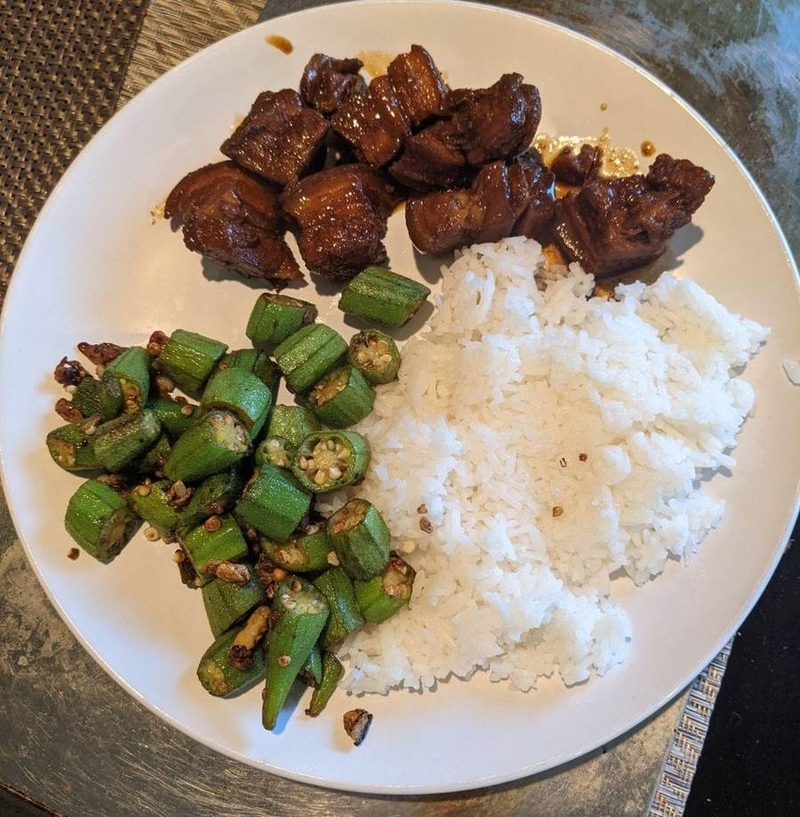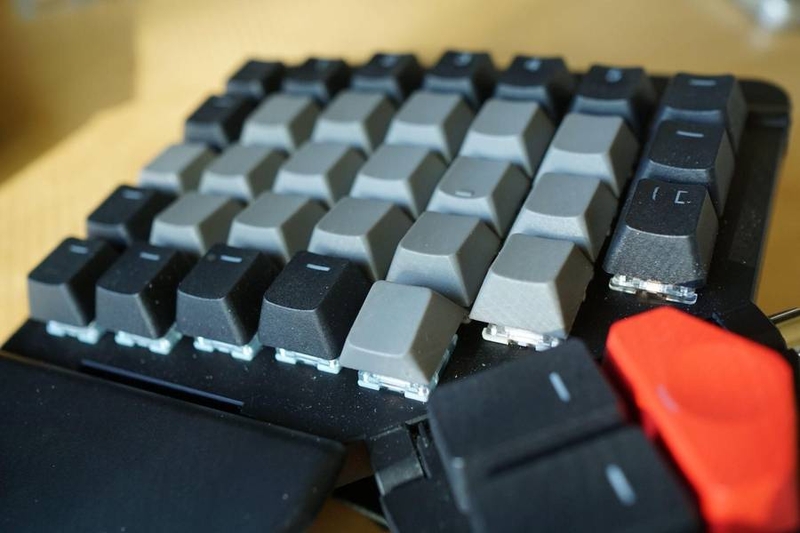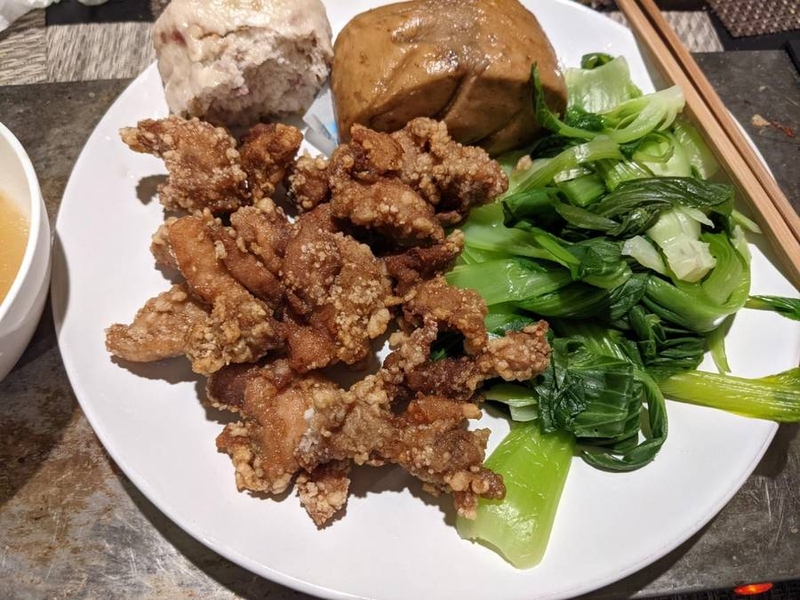The people who use our boards.
364 interviews since 2018
The people who use our boards.
Bryce Long
EngineerWho are you, and what do you do? What do you like to do outside of work?
My name is Bryce Long! I am an engineer at NVIDIA. For many years I have worked on the design of the silicon that goes into our GPUs. Recently, I switched to the deep learning compute side, which is a combination of software and hardware architecture work.
Outside of work, I have many unrelated interests:
- My main interest is Olympic weight lifting, which I train at least five times a week in my backyard gym. My best snatch is 97 kg, and my best clean and jerk is 114 kg, while I weigh 73 kg.
- I enjoy learning and experimenting with biomechanics. This is primarily motivated by obtaining better movement quality in weightlifting, but also motivated my interest in ergonomics for computer work, which is how I learned about the Moonlander and alternate keyboard layouts.
- I love PC gaming. My last console was the venerable Nintendo GameCube, and since then I have not found a reason to ditch the flexibility and power of PC gaming for a console! I play mostly single player adventure titles. Some of my favorite releases include Control, the Arkham series, and the Ori series!
- I love to cook! I make dinner almost every day and usually cook a mix of simple homestyle Chinese food and Western comforts.

What hardware do you use?
My work machine is a Dell Precision 5750 laptop.
My personal rig is a custom-built PC with an AMD Ryzen 3600 CPU, 32 GB of RAM, and NVIDIA RTX 2080 GPU. I use the machine for gaming and deep learning training.

Both machines drive a 34” 144Hz curved ultrawide gaming monitor from Acer. The ultrawide aspect ratio is great for gaming and excellent for productivity (especially when you have to view spreadsheets with hundreds of columns!)
I also use a standing desk and chair from Autonomous.ai. I also have an old Wacom tablet for sketching, which is an excellent tool for online collaboration (pictures are definitely worth thousands of words!)
And what software?
Both my machines run Windows 10.
For work, I do a lot of development in Linux environments, so I use WSL for offline work, VSCode with remote SSH/remote containers for accessing remote machines, and byobu/tmux for remote session management. Vim is definitely my editor of choice, so much so that I needed to install vim emulation in VSCode! I wrote a lot of Verilog, Perl, and C when I was a hardware engineer. Nowadays, I mostly write in Python and C++/CUDA.
For my personal tasks, the only interesting software I use is Adobe Photoshop, since I do quite a bit of image creation and photo editing.
What’s your keyboard setup like? Do you use a custom layout or custom keycaps?

I use the Moonlander. It is my fourth mechanical keyboard, following two full-sized keyboards from Das Keyboard and a 75% keyboard from Epomaker. I have replaced the keycaps with blank dark gray Cherry profile PBT keycaps from ePBT. My switches are placed in a strategic fashion.
- The alphabet keys use a tactilinear switch (Greetech Brown) which allows for maximum speed without loss of finger control. These switches have a crisp tactile event that is far more noticeable compared to Cherry MX Brown.
- The outer pinky keys also use a tactilinear (Everglide Jade Green) with a lighter spring weight and lower activation force to avoid stressing the pinkies when they are needed (which never happens on my layout anyway, since I have moved modifiers to my home row and only put rare one-time-use keys on my pinkies). These switches have a larger tactile bump than Greetech Browns, but I do not like them for typing, since they are too light.
- The thumb keys are top-heavy tactile switches (Everglide Oreo and TTC Bluish White switches, aka Holy Panda clones). This kind of switch is perfect for the thumbs because they are strong but slow digits; thus the large early tactile event of these switches can actually be felt by the thumbs (tactilinear switches feel like nothing), while the sudden bottom-out makes it easy for one to hold them down for layer toggles or dual function keys (all my thumb keys fall into one of these functions).
As you can see in the picture, I have printed a wedge that allows the keyboard to tent to a much higher angle, approximately nineteen degrees. This allows me to tent without needing the thumb cluster to point down, allowing my short thumbs to reach the thumb cluster without much reach. The design for the wedge is publicly available on Thingiverse.

The programmability of the keyboard is addictive. My favorite features are the dual function modifier/layer toggle keys which give my thumbs twice as many functions. I also created tons of macros for commonly used functions in VSCode, OneNote, and tmux, since it liberates one from finger ninjaing with weak fingers and, most importantly, being tied to QWERTY.
After I settled on the functions that my thumb keys and macros would have, I started to learn alternate layouts, since QWERTY is not designed for computer touch typing (it is designed for typewriters on which the users slam each key with their index fingers). It is certainly acceptable for those who do not type a lot, but I would say most people who buy this kind of keyboard type a lot :)
I first learned and used Colemak Mod-DH for a month, but did not like how taxing the layout was for my right index finger (this is one of its well-known shortcomings, since it tries to stay close to QWERTY). I then switched to Hands Down Neu, which is a much more comfortable layout in terms of same finger bigrams and finger load distribution.
My current layout on Oryx shows everything I have talked about so far. The layout as it appears on Oryx is not exactly what I use, though! Once I learned how to use QMK, I cloned ZSA’s QMK fork and edited the firmware source code myself to add more advanced QMK features like combos and shift overrides, which are great features that I use every day!
What would be your dream setup?
I would love to try one of LGs 38” ultrawide gaming monitors for the ultimate immersion. Otherwise, I am very happy with the hardware I have :)





